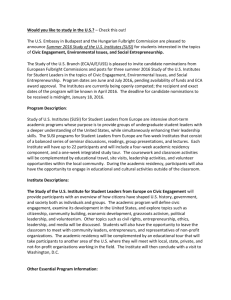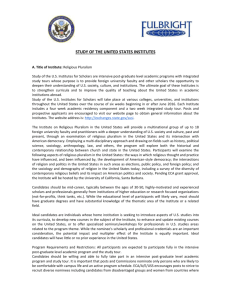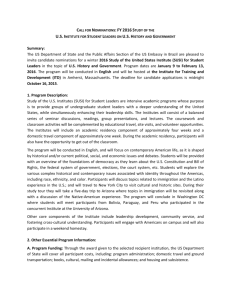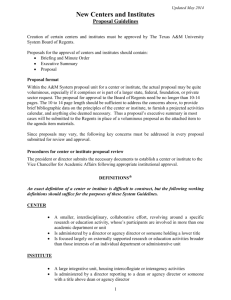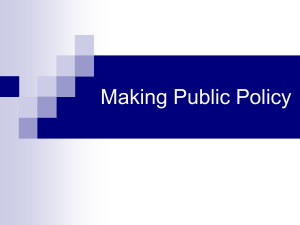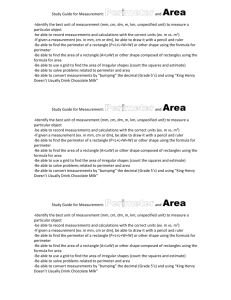CALL FOR NOMINATIONS: FY-2014 STUDY OF THE U.S.
advertisement
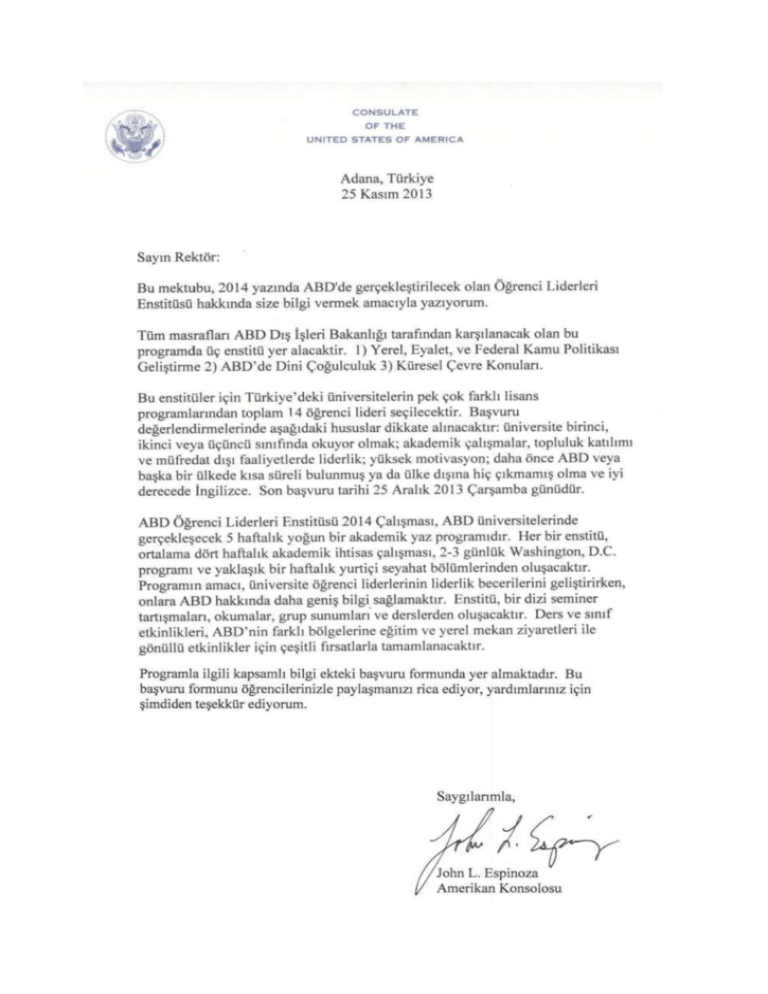
CALL FOR NOMINATIONS: FY-2014 STUDY OF THE U.S. INSTITUTE FOR STUDENT LEADERS ON: DUZELTME: 1. SOCIAL ENTREPRENEURSHIP; LOCAL, STATE, AND FEDERAL PUBLIC POLICYMAKING 2. GLOBAL ENVIRONMENTAL ISSUES; AND 3. RELIGIOUS PLURALISM IN THE UNITED STATES, PROPOSED DATES: JUNE -JULY OR JULY-AUGUST, 2014 The deadline for receipt of applications is Wednesday, December 25, 2013. Late or incomplete applications will not be accepted. Applications should be emailed to tkleaders@state.gov The subject heading of the email should read as follows: [University Name], [Student Name], [Name of Institute Applying to]. Example: Çukurova University, Mustafa Öztürk, Global Environmental Issues SUMMARY: The Study of the U.S. Branch Office of the Educational and Cultural Affairs (ECA) and the U.S. Mission to Turkey is pleased to invite nominations for the FY-2014 Study of the U.S. Institute for Student Leaders. This year students will have the opportunity to participate in an institute related to one of the following three topics: -Local, State, and Federal Public Policymaking -Global Environmental Issues; and -Religious Pluralism in the United States BRIEF DESCRIPTIONS OF THE INSTITUES: The institutes will take place between June- July 2014 and July- August 2014. Exact dates and host institutions will be announced at a later time. The deadline for submitting applications to tkleaders@state.gov is close of business on Wednesday, December 25, 2013. Each applicant can only apply for only one of these institutes. S/he is also expected to clearly state which institute s/he intends to apply. Those applicants who fail to complete their applications completely and follow the instruction will automatically be disqualified. Below is a brief description of each institute: The Study of the U.S. Institute on Local, State, and Federal Public Policymaking will provide participants with an overview of the U.S. Federalist system of government as well as the role of nongovernmental institutions such as civic organizations, the media, and the private sector in the creation of U.S. public policy. Discussions will explore the responsibilities of local and state government, as well as the three branches of the U.S. government, the system of checks and balances, and the role of local and state governments in leading and innovating in various policy areas. The Institute will also examine how organizations, the media, and the private sector influence government policy. Within the broader frame of the public policy process, students will be exposed to specific public policy questions on topics such as public finance, rule of law, education, public health, environment, and foreign policy. Participants will be drawn from the following regions and countries: Armenia, Azerbaijan, Georgia, and Turkey – June - July, 2014 The Study of the U.S. Institute on Global Environmental Issues will explore the role that environmental policy has played in the economic and political development of the United States. The Institute should use experiential learning techniques to expose participants to current themes in the field, including climate change, natural resource management, sustainable development / sustainable agricultural practices, food security, ecotourism, energy generation (new and traditional forms), and water management and treatment. The issues will be explored from numerous angles: local grassroots activism and civic initiatives, marketoriented approaches, and federal government policies and regulation. Finally, the Institute will explore environmental issues in the context of a globalized society, and draw comparisons between the United States and the participants‟ home countries. Participants will be drawn from the following regions and countries: Brazil, China, Japan, Russia, and Turkey – July 7- August 9, 2013 The Study of the U.S. Institute on Religious Pluralism in the United States will explore U.S. history, society, and institutions within the context of religious pluralism and interfaith dialogue. Topics will include, but are not limited to, early religious traditions in the U.S.; the separation of church and state; immigration and the introduction of new religions in the U.S.; protection and representation of minority groups and religions; and interfaith dialogue and cooperation in a diverse and rapidly changing world. Participants will meet with U.S. community leaders of different faiths that advocate for collaboration and tolerance among religious groups. Participants will also examine the leadership role that religious officials play in their own societies and develop ideas for how they can work with leaders, of similar or different faiths, to bring about positive social change. Participants will be drawn from the following countries: Egypt, Iraq, Lebanon, and Turkey – July 5August 9, 2013 PROGRAM DESCRIPTION: Study of the U.S. Institutes (SUSI) for Student Leaders are intensive academic programs whose purpose is to provide groups of undergraduate student leaders with a deeper understanding of the United States, while simultaneously enhancing their leadership skills. The Institutes will consist of a balanced series of seminar discussions, readings, group presentations, and lectures. The coursework and classroom activities will be complemented by educational travel, site visits, leadership activities, and volunteer opportunities. The Institutes will include an academic residency component of approximately four weeks and a domestic study tour of approximately one week. During the academic residency, participants will also have the opportunity to engage in educational and cultural activities outside of the classroom. The four week academic residency will focus on U.S. history, society, and institutions within the context of religious pluralism and interfaith dialogue. Participants will discuss topics such as early religious traditions in the U.S.; the separation of church and state; immigration and the introduction of new religions in the U.S.; protection and representation of minority groups and religions; and interfaith dialogue and cooperation. Participants will meet with community leaders of different faiths that advocate for collaboration and tolerance among religious groups. The academic residency will be complemented by an educational tour that will take participants to another area of the U.S. where they will meet with local leaders of different faiths, leaders of nonprofit organizations, and visit important religious sites. The Institute will then conclude with a 3 day program in Washington, D.C. OTHER ESSENTIAL PROGRAM INFORMATION: Program Funding: Through the award given to the selected recipient institution, ECA will cover all participant costs, including: program administration; domestic travel and ground transportation; book, cultural, mailing and incidental allowances; and housing and subsistence. ECA will provide posts with fiscal data to pay for participants' international travel costs within set limits. HOUSING AND MEAL ARRANGEMENTS: Housing will be in university dorms or full service hotel. Participants may be expected to share a room and bathroom with another student of the same gender. Most meals will be provided at campus facilities, though participants may have access to a kitchen to cook some meals on their own. It is important that nominees are aware of these arrangements and that they are comfortable with such accommodations. Care will be taken to ensure that any special requirements regarding diet, daily worship, housing, and medical care are satisfied. HEALTH BENEFITS: All participants will receive the Department of State's coverage of $100,000 with a $15 co-pay for the duration of the program. Pre-existing conditions are not covered. Information on the health benefit program may be found online at http://usdos.sevencorners.com/. PROGRAM REQUIREMENTS AND RESTRICTIONS: Participants are expected to fully participate in all aspects of the program. They should attend all lectures and organized academic and cultural activities, and complete assigned readings. Candidates should be made aware that the Institute is very intensive and that there will be little time for personal pursuits unrelated to the program. Under no circumstances are participants allowed to arrive in the U.S. prior to the start date of the Institute or remain in the U.S. after its end date. Similarly, participants will not be allowed to leave the Institute to visit relatives or friends while in the U.S. If a relative or friend wishes to visit them, it will be addressed on a case by case basis, in consultation with ECA program officer and the host institution. Violations of program rules, host institution rules, or local, state or federal laws can be grounds for immediate dismissal from the program. ENGLISH LANGUAGE ABILITY: All candidates should be proficient in English so that they can be active participants in the academic program. Host institutions will take into account that the level of comprehension and speaking ability of students may vary, and will prepare lectures and discussions that meet the highest academic standards while using language appropriate for students where English is their second or third language. CANDIDATE DESCRIPTION AND QUALIFICATIONS: The participants are expected to be highly motivated first through third year undergraduate students from colleges, universities, and other institutions of higher education, who demonstrate leadership through academic work, community involvement, and extracurricular activities. Their fields of study can vary, and may include the sciences, social sciences, humanities, education, business, and other professional fields. Emphasis should be made on recruiting participants from non-elite backgrounds, from both rural and urban sectors, and with little or no prior experience in the United States or elsewhere outside their home country. In addition, recruitment of participants should be focused on historically underserved, indigenous groups, and ethnic minority communities. CANDIDATES NOMINATED FOR THIS PROGRAM WILL: -be proficient in English; -be interested in the topic of either 1) Local, State, And Federal Public Policymaking; 2) Global Environmental Issues; or 3) Religious Pluralism in the United States -be between 18 and 25 years of age; -have at least one semester left of their undergraduate studies, and therefore be committed to return to their home universities following completion of the program; -demonstrate strong leadership qualities and potential in their university and community activities; -indicate a serious interest in learning about the United States; -have a sustained high level of academic achievement, as indicated by grades, awards, and teacher recommendations; -demonstrate commitment to community and extracurricular university activities; -have little or no prior study or travel experience in the United States or elsewhere outside of their home country; -be mature, responsible, independent, confident, open-minded, tolerant, thoughtful, and inquisitive; -be willing and able to fully participate in an intensive academic program, community service, and educational travel; and, -be comfortable with campus life, prepared to share living accommodations, and able to make adjustments to cultural and social practices different from those of their home country. FREQUENTLY ASKED QUESTIONS: This FAQ section addresses some commonly asked questions by applicants. a. What degree of English proficiency should an applicant have? All participants must be fully proficient in English; throughout the Institute they will need to fully understand lectures, actively participate in discussions, and read and write assignments in English. b. Can an applicant who is a dual citizen (U.S. and country of origin) participate in Study of the U.S. Institutes? No. U.S. citizens and permanent residents (green card holders) are NOT eligible to participate in this program. c. Can an individual who is not a citizen of the nominating post country (Turkey) apply? No, students who are only citizens of Turkey will be chosen to participate. d. The applicant has been to the U.S. before; would s/he be disqualified? No. Applicants with little experience in the United States can be considered for the program. If this is the case, please be sure to clearly indicate the purpose of your visit to the U.S., the year, and the length of your stay as requested on the nomination form. e. How much free time will a participant have during the program? There will be some free time during the program. However, applicants/nominees MUST understand that this is an intensive academic program and they are expected to fully participate in all lectures, activities, and scheduled events. f. If a nominee has relatives in the U.S., would s/he have time to see them? Participants will NOT be allowed to leave the Institute to visit relatives or friends. Occasionally it is possible for a relative or friend to visit the participant on a specific day designated by the host institution if the schedule permits. These situations will be addressed on a case by case basis in consultation with the ECA program officer and the host institution. g. Can a participant arrive early/late or stay after the Institute? No. Participants who choose to travel to the United States on a Study of the U.S. program are required to abide by the terms and conditions of the program. These terms state clearly that student leaders may NOT arrive in the United States before the program start date or remain in the country after the close of the institute. h. Can a graduate student participate in this Institute? No. Study of the U.S. Institutes are designed exclusively for undergraduate students. i. Can a participant miss one part or component of the Institute? No. All participants are expected to participate in all scheduled lectures, events, site visits, trips, and activities. j. How much money will participants need to bring for the program? The Study of the U.S. Institutes cover all costs of an individual's participation including transportation, lodging, and meals. Generally, host institutions provide for meals through a combination of a cafeteria meal plan and cash allowance to permit participants to cook or eat at local restaurants. Information on housing and meal arrangements will be provided by the host institution six weeks prior to the start of the Institute. Participants should bring their own spending money if they wish to purchase souvenirs or other items during their time in the United States. k. If a nominee participated in the English Access Micro-scholarship Program; can he/she participate in this Institute? Yes. NOMINATION FORM/ FORMAT: All nominations must follow the format attached. It is essential that all items are completely accurate.
